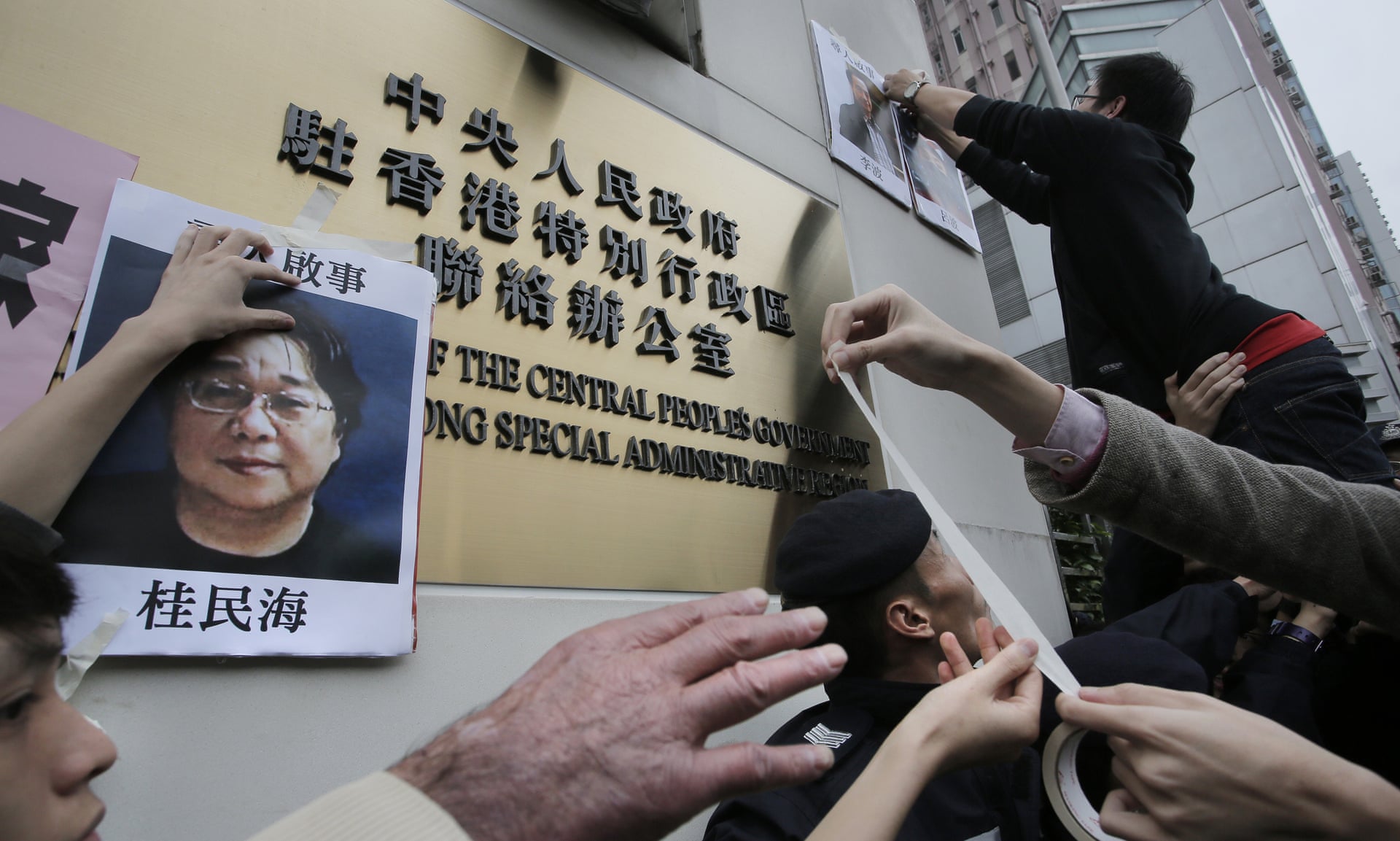By Jojje Olsson

The kidnapping of a foreign citizen in front of accompanying diplomats constitutes a new level of assault, even for China.
If the world does not condemn it in the strongest possible terms, it will also represent a new level of submission, encouraging China to continue exporting its repression abroad.
Ever since Swedish publisher Gui Minhai was first kidnapped in October 2015, my government’s primary focus in its relations with China has been to increase economic cooperation.
Last year, our prime minister, Stefan Löfven, visited China with the largest Swedish trade delegation in decades.
Yet while Löfven claimed he had raised the issue of Gui Minhai behind closed doors, neither he nor anyone else, uttered a single word about Gui in public.
Yet while Löfven claimed he had raised the issue of Gui Minhai behind closed doors, neither he nor anyone else, uttered a single word about Gui in public.
The post-trip communique was packed with details about new trade deals and economic cooperation. Not a single line mentioned the Swedish political prisoner who was falling sick behind bars at a secret location far from conventions and banquets.
The quiet diplomacy that has characterised Sweden’s handling of Gui Minhai stands in stark contrast to the case of Martin Schibbye and Johan Persson, two Swedish journalists who were jailed in Ethiopia in 2011.
The quiet diplomacy that has characterised Sweden’s handling of Gui Minhai stands in stark contrast to the case of Martin Schibbye and Johan Persson, two Swedish journalists who were jailed in Ethiopia in 2011.
Swedish ministers became personally involved in that case almost immediately.
The prime minister branded Ethiopia a “dictatorship”.
Gui Minhai has enjoyed no such support.
Gui Minhai has enjoyed no such support.
Despite several requests, his daughter, Angela Gui, only managed to speak on the phone with foreign minister Margot Wallström for the first time at the weekend.
The foreign ministry has told her not to contact the Swedish embassy in Beijing.
Last year Angela told me that Lars Fredén, the Swedish ambassador to China until 2016, had deliberately avoided her when they ended up at the same social event in Stockholm.
Gui was kidnapped for a second time last Saturday.
Gui was kidnapped for a second time last Saturday.
But only after the story was reported on Monday did Wallström issue a short statement calling for “the immediate release of our fellow citizen”.
That was the first time during Gui’s 829 days of extralegal detention that the Swedish authorities had openly criticised China’s actions.
That was the first time during Gui’s 829 days of extralegal detention that the Swedish authorities had openly criticised China’s actions.
That is, of course, exactly the way Beijing wants it.
Because shedding light on the regime’s oppression hurts its ambitions to build its soft power to help increase the Chinese influence in international organisations, and make overseas investments with as little scrutiny as possible.
Several western countries have already been brought into line by the stick and carrot of economic cooperation.
Several western countries have already been brought into line by the stick and carrot of economic cooperation.
When Liu Xiaobo received the Nobel peace prize in 2010, Beijing severed diplomatic and trade relations with Oslo.
Only after the Norwegian foreign minister in late 2016 travelled to Beijing and read aloud a humiliating joint statement was Norway again able to export its salmon to China.
Despite all his flattery of China, David Cameron’s government was warned that Britain should not dare comment on Beijing’s erosion of Hong Kong’s freedoms.
Nowhere is Beijing’s disregard for international treaties more obvious than in the South China Sea, which China continues to militarise, despite international censure and a damning ruling from an international tribunal in 2016.
China is also succeeding in silencing the European Union’s criticism of its behaviour.
Despite all his flattery of China, David Cameron’s government was warned that Britain should not dare comment on Beijing’s erosion of Hong Kong’s freedoms.
Nowhere is Beijing’s disregard for international treaties more obvious than in the South China Sea, which China continues to militarise, despite international censure and a damning ruling from an international tribunal in 2016.
China is also succeeding in silencing the European Union’s criticism of its behaviour.
Last year, Hungary and Greece, both big destinations for Chinese loans and investments, blocked two EU joint statements on the deteriorating human rights situation in China.
After the two Swedish journalists were released from Ethiopian jail in 2012, Sweden’ ambassador hailed international pressure as a decisive factor.
After the two Swedish journalists were released from Ethiopian jail in 2012, Sweden’ ambassador hailed international pressure as a decisive factor.
Sweden now needs to reach out to the international community for a similar cooperation on Gui Minhai.
Every politician who still claims a shred of morality must step out and speak out.
Aucun commentaire:
Enregistrer un commentaire